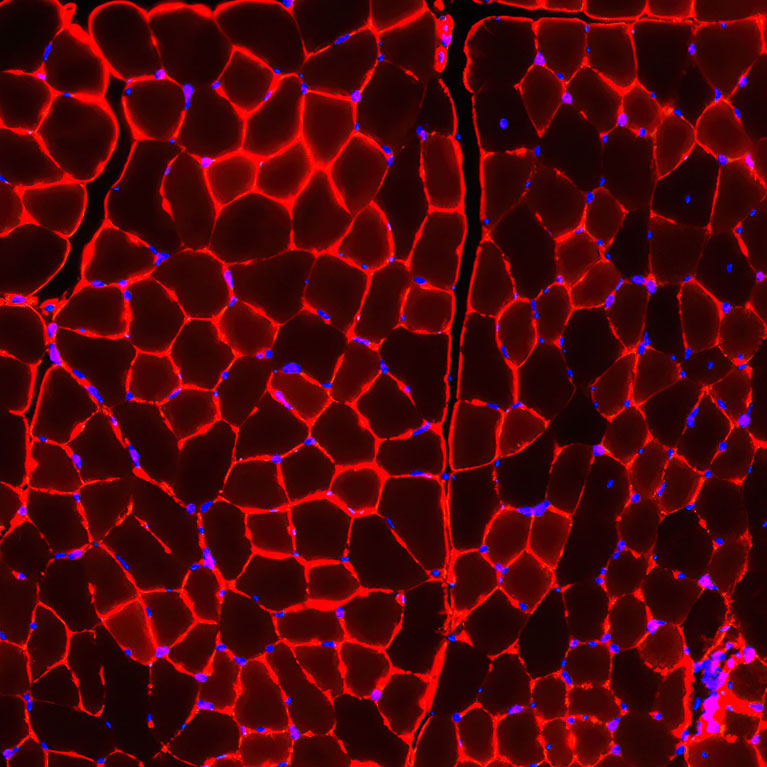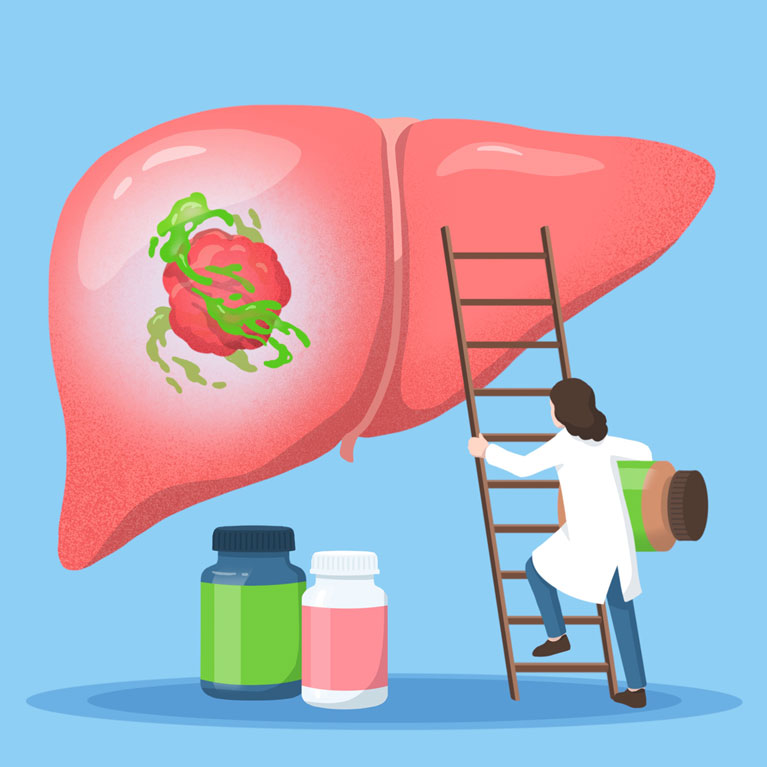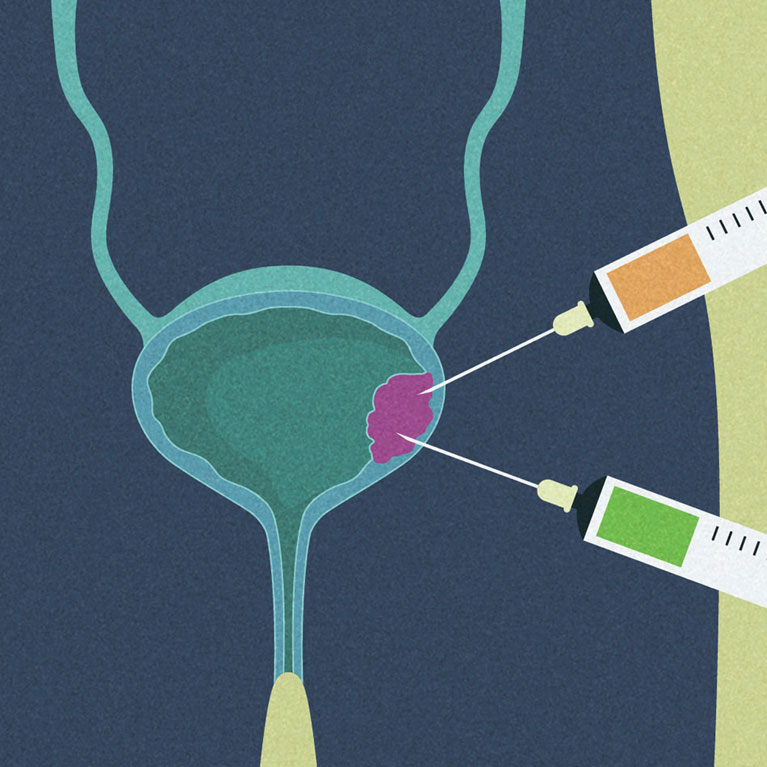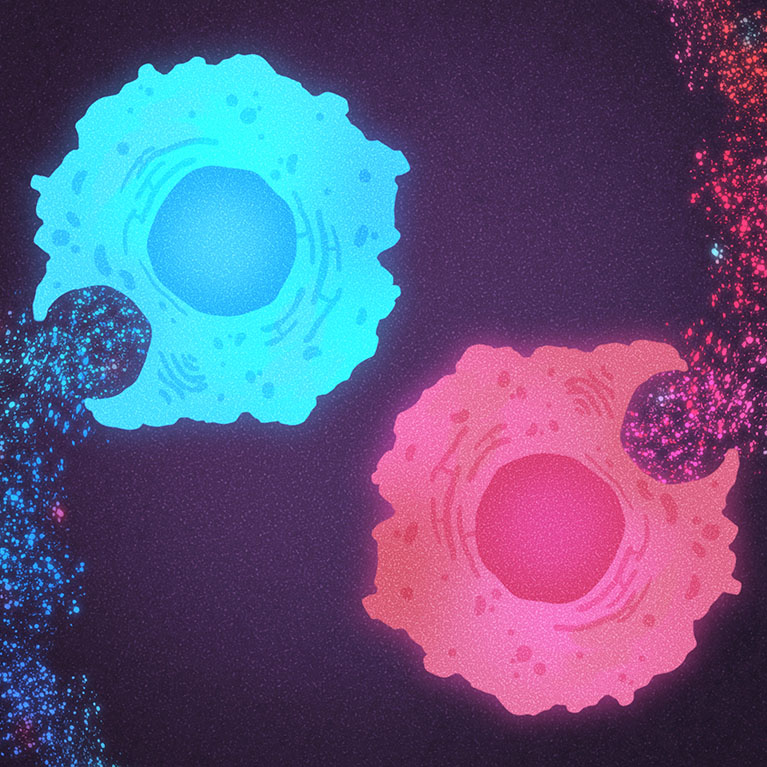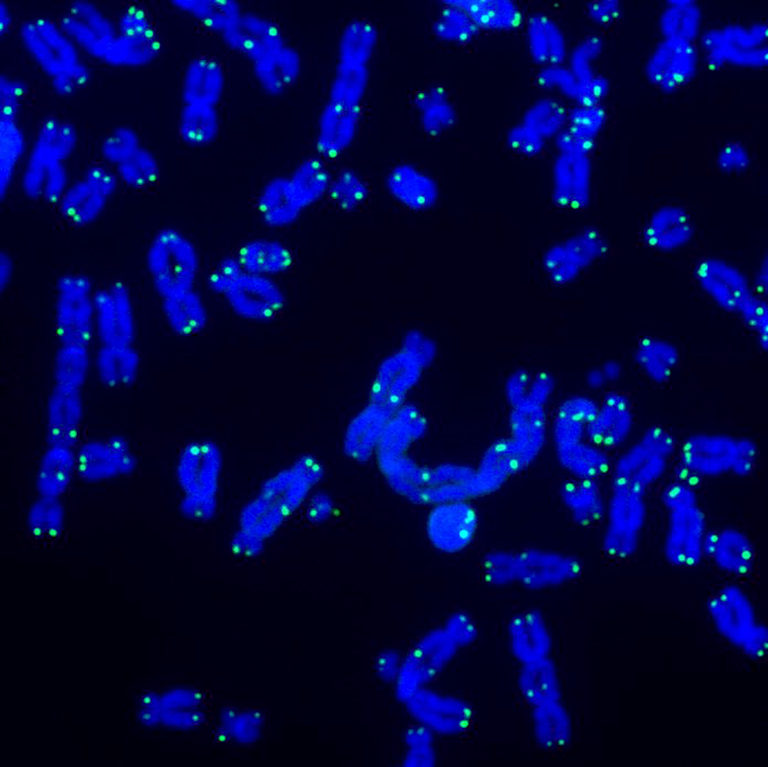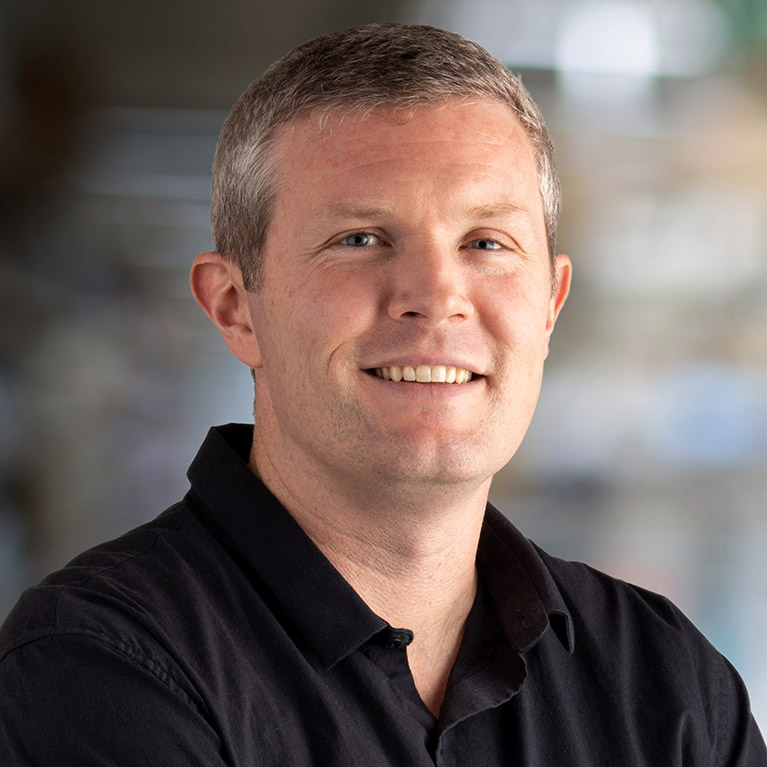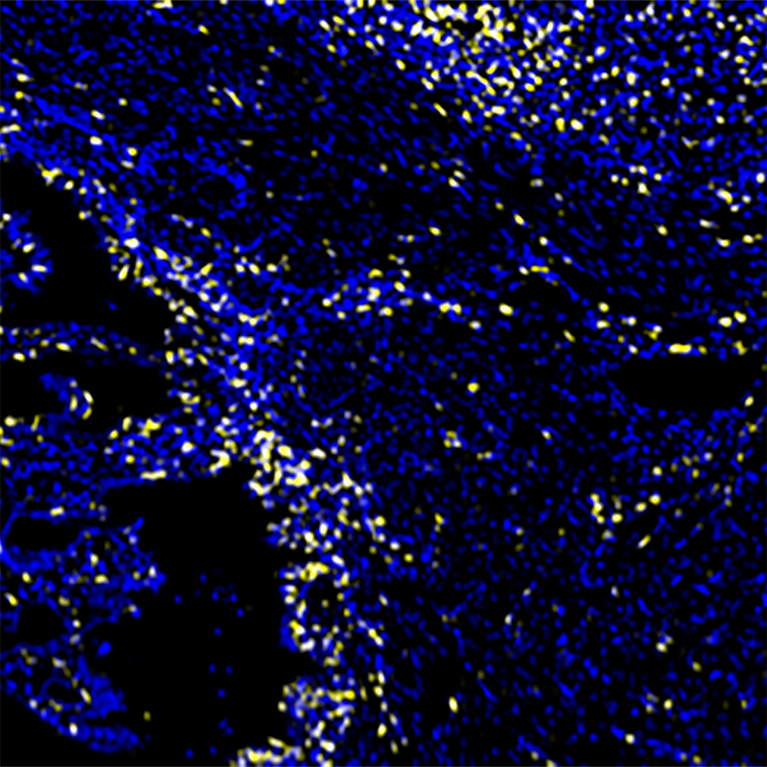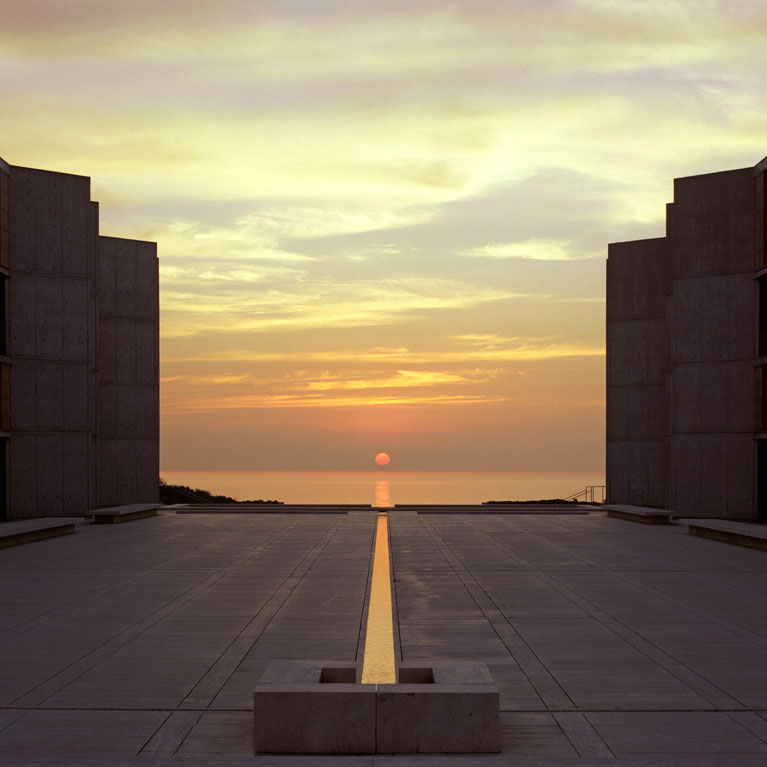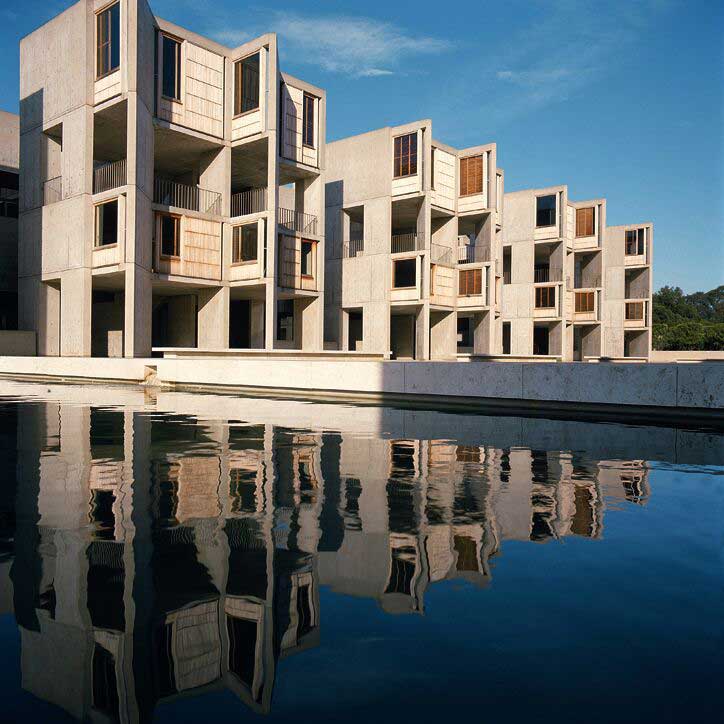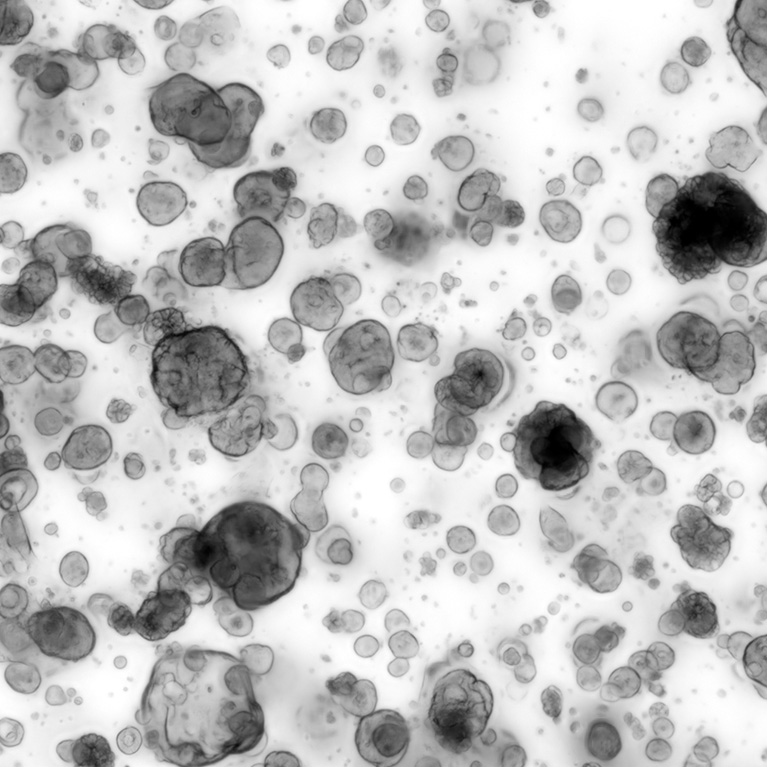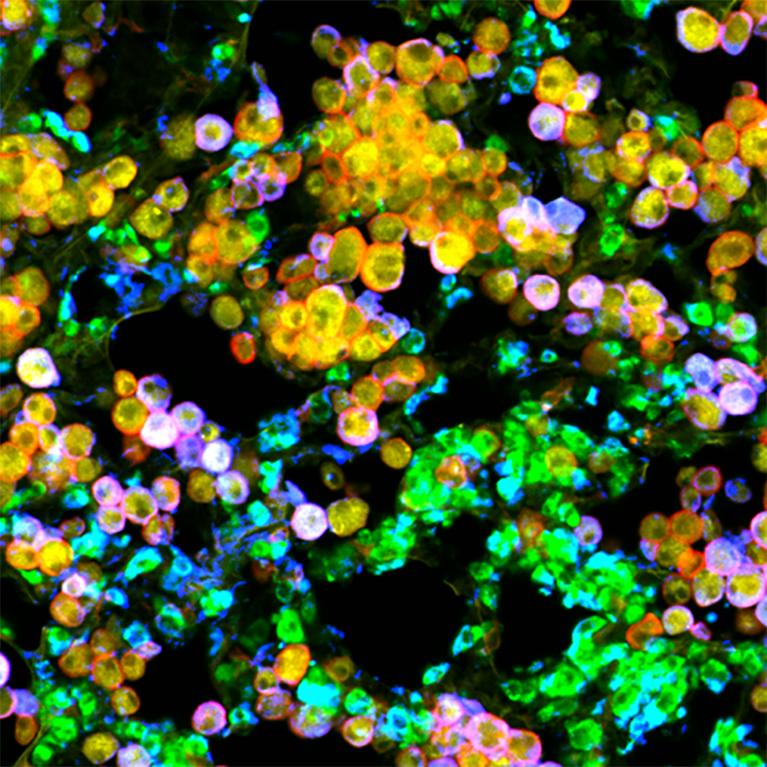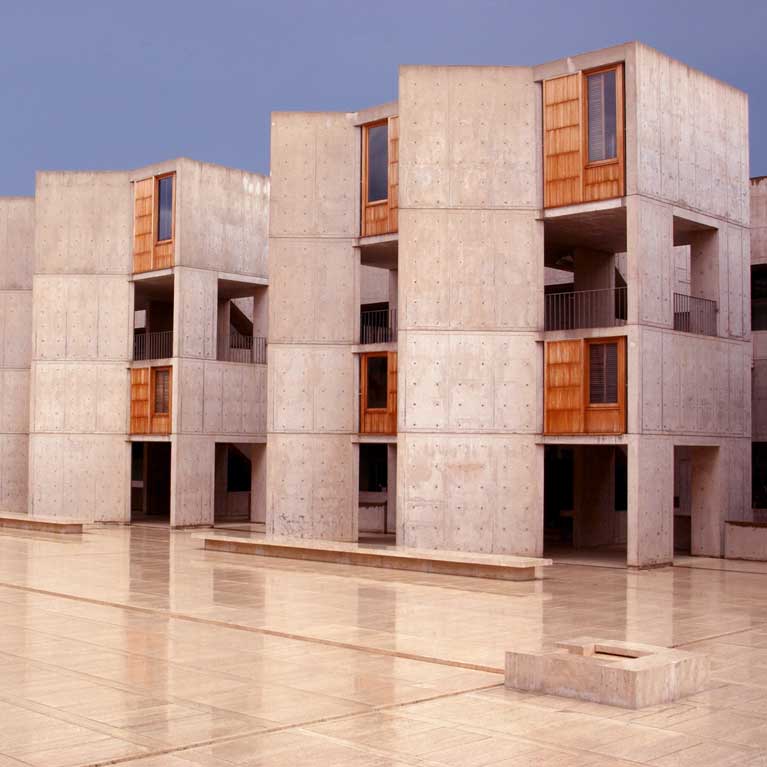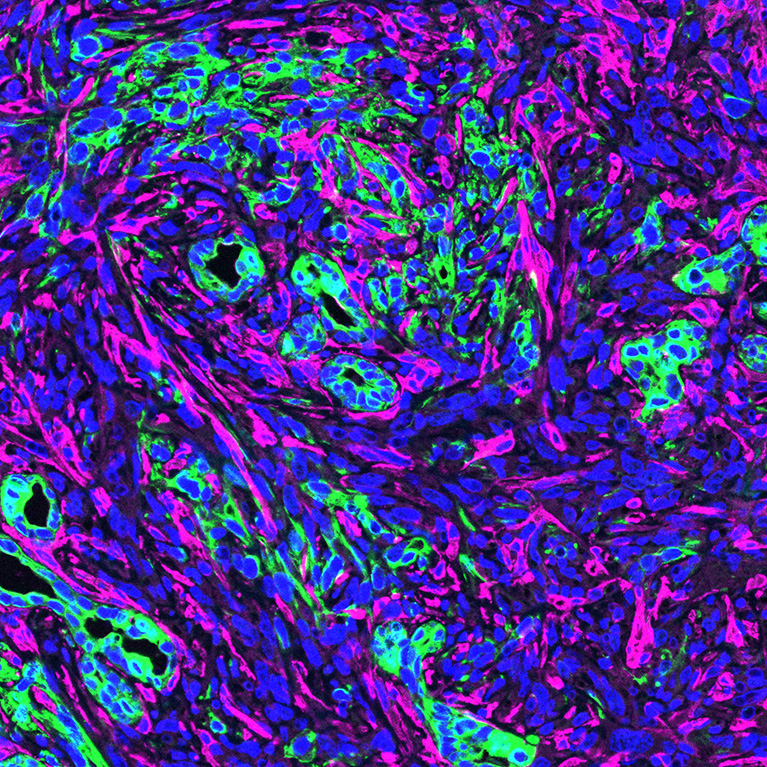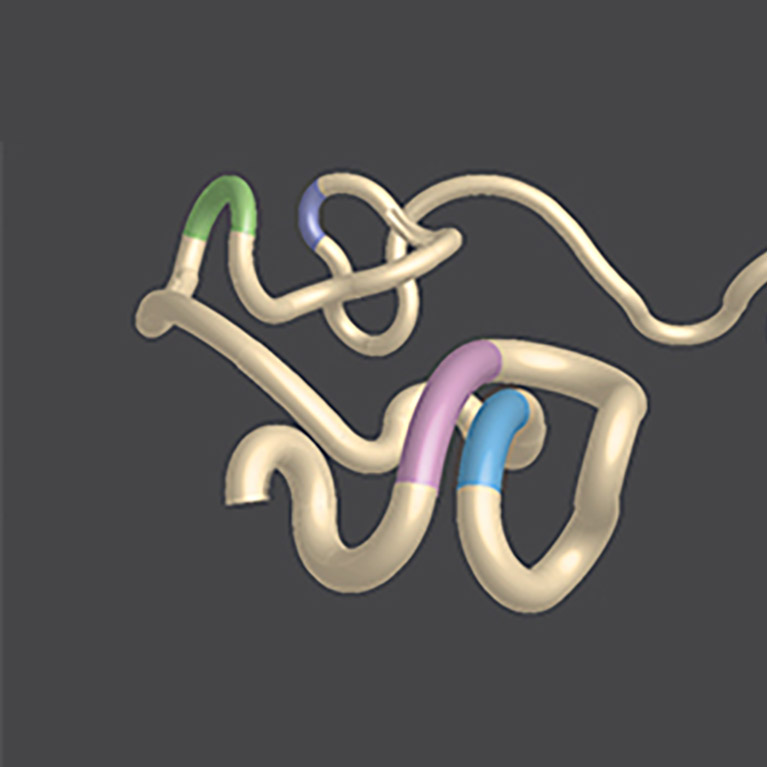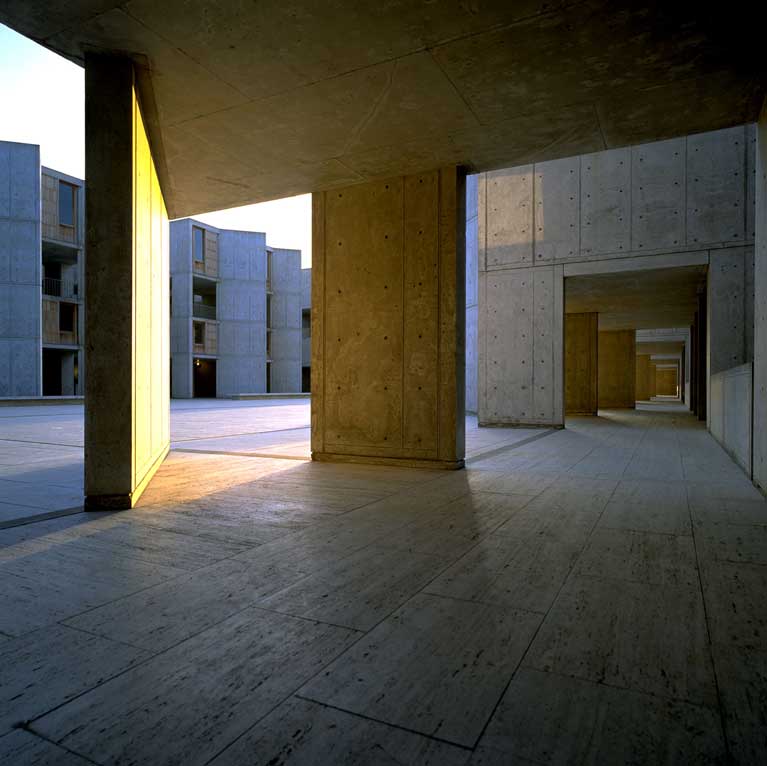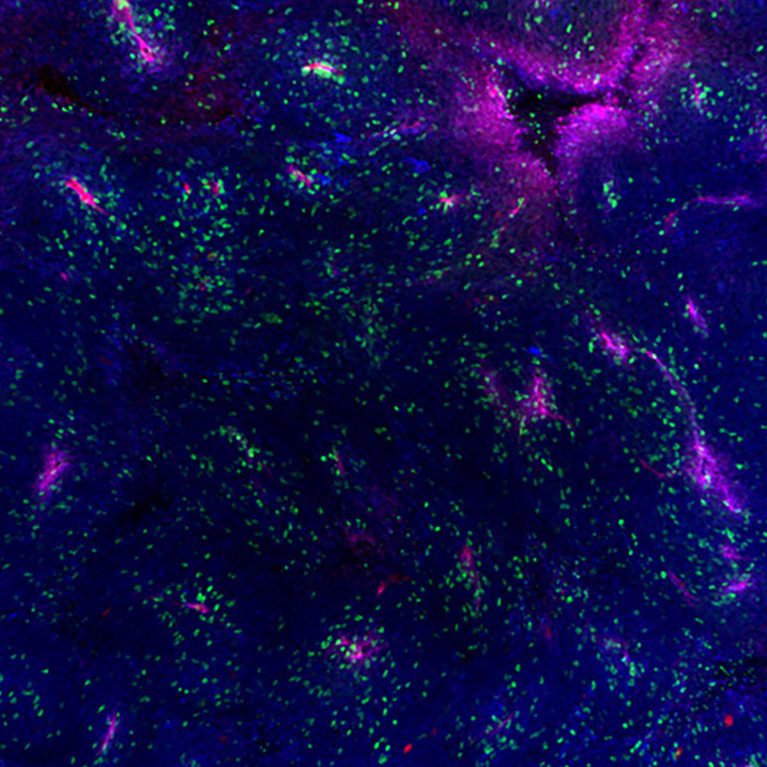In the News
Recent Salk news from the Conquering Cancer team
Boosting this molecule could help retain muscle while losing fat
LA JOLLA—About one in eight adults in the United States has tried or currently uses a GLP-1 medication, and a quarter of those users cite weight loss as their main …
Bile acids exacerbate liver cancer, dietary supplement may offer relief
LA JOLLA—Immunotherapy is a modern approach to cancer treatment that uses a patient’s own immune system to help fight tumors. It has made an incredible impact on treating cancers in …
Putting a lid on excess cholesterol to halt bladder cancer cell growth
LA JOLLA—Like all cancers, bladder cancer develops when abnormal cells start to multiply out of control. But what if we could put a lid on their growth?
Previous studies showed that …
Your immune cells are what they eat
LA JOLLA—The decision between scrambled eggs or an apple for breakfast probably won’t make or break your day. However, for your cells, a decision between similar microscopic nutrients could determine …
Unveiling Telo-seq: A breakthrough in telomere research on aging and cancer
LA JOLLA—Within each of our cells, long strands of DNA are folded into chromosomes and capped with protective structures called telomeres. But telomeres shorten as we age, eventually getting so …
Salk scientist Jesse Dixon named 2024 Pew Biomedical Scholar
LA JOLLA—Salk Institute Assistant Professor Jesse Dixon has been named a 2024 Pew Biomedical Scholar by The Pew Charitable Trusts. This honor provides funding to early-career investigators who demonstrate outstanding …
This time, it’s personal: Enhancing patient response to cancer immunotherapy
LA JOLLA—Immunotherapy has revolutionized the way we treat cancer in recent years. Instead of targeting the tumor itself, immunotherapies work by directing patients’ immune systems to attack their tumors more …
Salk Institute receives $5 million gift from Paul M. Angell Foundation to develop pancreatic cancer diagnostics and therapies
LA JOLLA—The Salk Institute will receive a four-year, $5 million gift from the Paul M. Angell Family Foundation to support pancreatic cancer research. The project’s leaders, Salk Assistant Professor Dannielle …
Salk immunologist Susan Kaech elected to National Academy of Sciences
LA JOLLA—Salk Institute Professor Susan Kaech has been elected to the U.S. National Academy of Sciences. Kaech is one of 120 new members and 24 international members to be elected …
A step towards clinic-ready patient-derived organoids
LA JOLLA—Pancreatic cancer has the highest mortality rate of all major cancers and is projected to become the second-leading cause of cancer-related deaths in the United States by 2030. It …
Lung cancer hijacks immune cell metabolism to fuel its own growth
LA JOLLA—Lung adenocarcinoma is the most common lung cancer and the cause of most cancer-related deaths in the United States. There are several ways lung adenocarcinoma can arise, one of …
Salk Institute Professor Ronald Evans honored with Japan Prize
LA JOLLA—Salk Professor Ronald Evans has been named the 2024 recipient of the Japan Prize in the field of Medical Science and Pharmaceutical Science. The Japan Prize Foundation awards this …
Salk Institute celebrates 50th anniversary and renewal of National Cancer Institute designation
LA JOLLA—The Salk Institute marks 50 years as a National Cancer Institute (NCI)-Designated Cancer Center with good news: NCI has renewed the designation and grant support for another five years.
With …
How drugs can target the thick “scar tissue” of pancreatic cancer
LA JOLLA—Pancreatic cancer is one of the deadliest cancers—only about one in eight patients survives five years after diagnosis. Those dismal statistics are in part due to the thick, nearly …
Genetic architecture may be key to using peacekeeping immune cells to treat autoimmunity or fight cancer
LA JOLLA—Regulatory T cells are specialized immune cells that suppress the immune response and prevent the body from attacking its own cells. Understanding how these cells work is key to …
Salk Institute’s Christina Towers receives NIH New Innovator Award
LA JOLLA—Salk Institute Assistant Professor Christina Towers received a five-year, $2.85 million National Institutes of Health (NIH) Director’s New Innovator Award from the NIH Common Fund’s High-Risk, High-Reward Research program. …
Two Salk Institute faculty members earn V Foundation awards for cancer research
LA JOLLA (September 25, 2023)—Salk Institute Assistant Professors Christina Towers and Deepshika Ramanan were named V Scholars by the V Foundation for Cancer Research. They will each receive $600,000 over …
Rewiring tumor mitochondria enhances the immune system’s ability to recognize and fight cancer
LA JOLLA—Immunotherapy, which uses the body’s own immune system to fight cancer, is an effective treatment option, yet many patients do not respond to it. Thus, cancer researchers are seeking …

